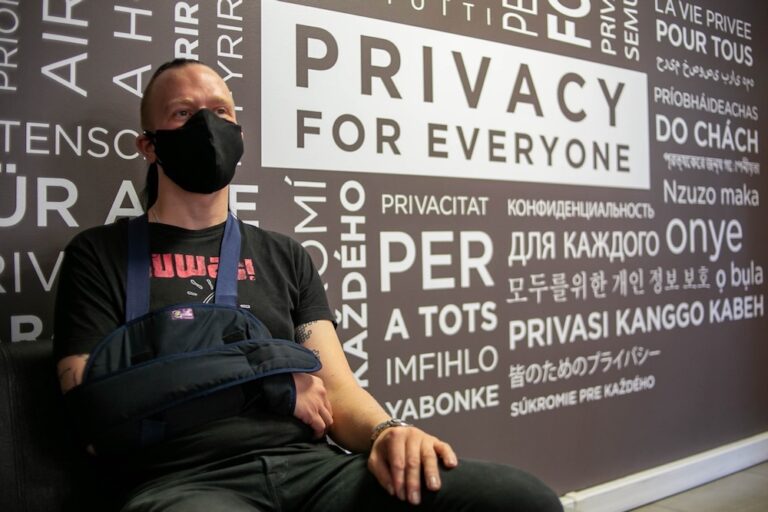(RSF/IFEX) – RSF has condemned the action of the Ecuadorian police in tapping and recording the phone calls of journalists Milton Pérez and Maria Fernanda Zavala, of local television station Teleamazonas. The journalists have been under surveillance since 20 April 2005, the date of President Lucio Gutiérrez’s overthrow in a popular uprising. “The sole aim […]
(RSF/IFEX) – RSF has condemned the action of the Ecuadorian police in tapping and recording the phone calls of journalists Milton Pérez and Maria Fernanda Zavala, of local television station Teleamazonas. The journalists have been under surveillance since 20 April 2005, the date of President Lucio Gutiérrez’s overthrow in a popular uprising.
“The sole aim of these police dirty tricks is to put the news media under state surveillance,” RSF said. “Ecuador’s political instability and attempts to prosecute members of the ousted government do not justify tapping journalists’ calls without their knowledge.”
“We call for a thorough investigation to establish who was responsible and we believe the judges who approved the tapping should be required to defend their decision,” the organisation added.
On 10 June, police acknowledged tapping the two journalists’ mobile phones and recording their calls with the aim of locating the fugitive former interior minister, Oscar Ayerve. The two journalists had interviewed Ayerve on 9 May after he went into hiding on 20 April. A warrant was issued for the former minister’s arrest immediately after Gutiérrez’s ousting because of his role in the use of violence against protesters during the uprising. He was on the run for a month thereafter.
It was a member of parliament, Carlos González, who revealed that the journalists’ phones were being tapped. Agence France-Presse quoted González as saying the tapping began on 20 April and only received retroactive approval from a judge on 17 May.
The police have issued contradictory statements in the case. While acknowledging their use of tapping, they denied having the required equipment to do so. They also said they had judicial authorisation but denied getting it retroactively.
Zavala told RSF that Ayerve ceased to be a fugitive on 18 May, when bail of US$8,000 dollars was paid for his release. “What I don’t understand is why they continued to tap our phones after that date,” she said.


